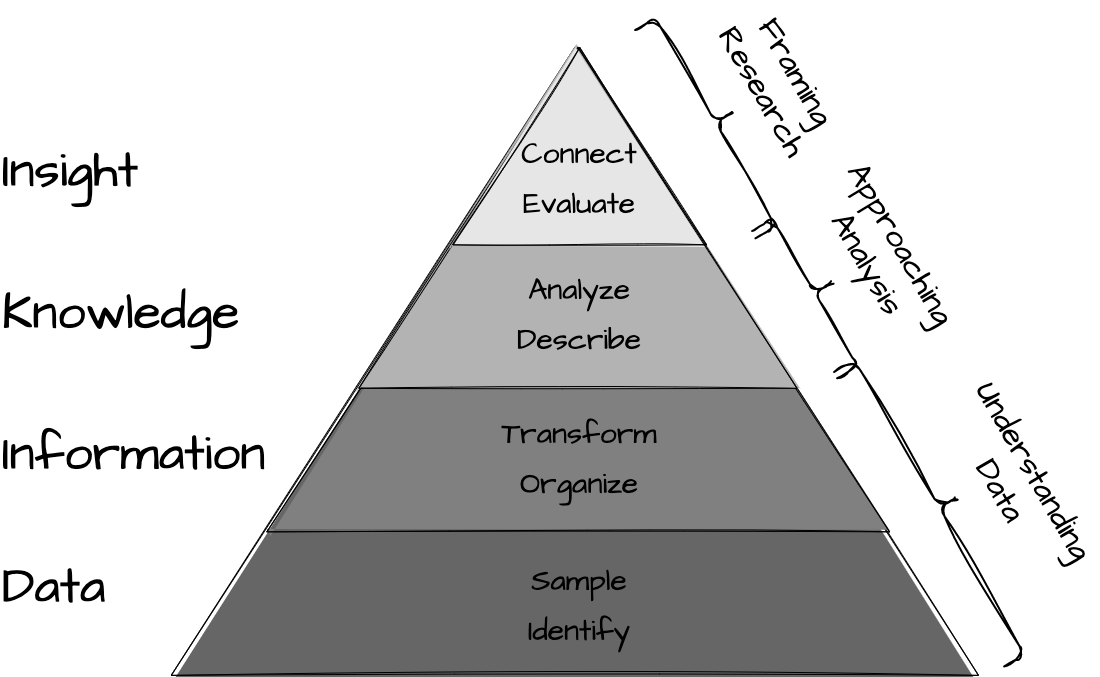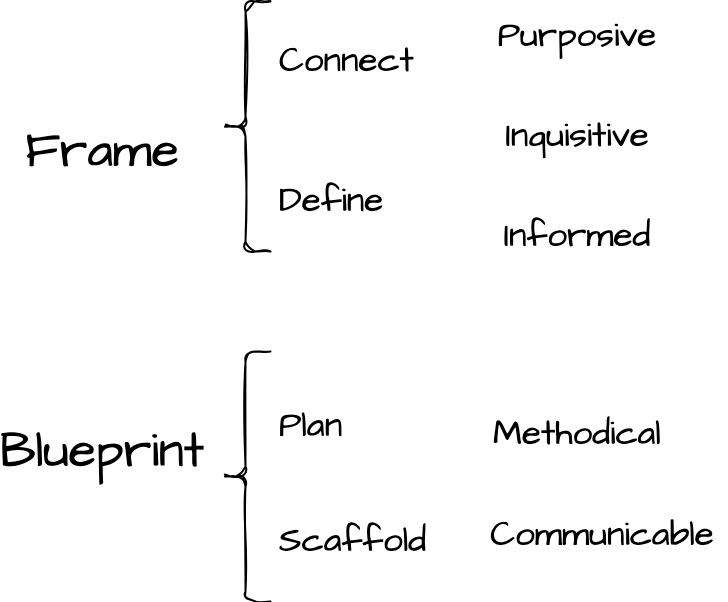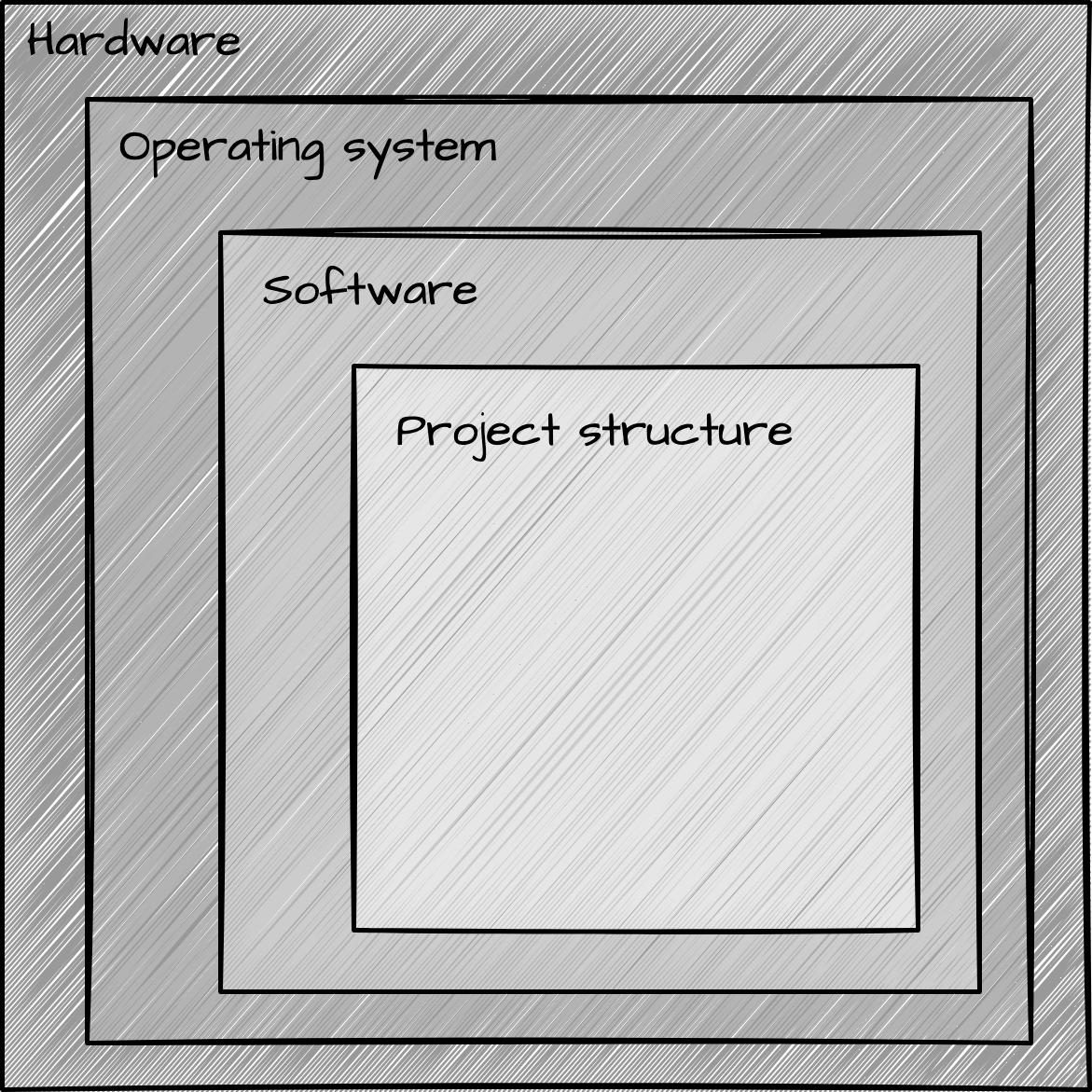Research
Framing and scaffolding the research process
Dr. Jerid Francom
Feb 14, 2024
Review

Overview

Research
| Characteristic | Description |
|---|---|
| Purposive | Based on identification of an issue or problem worthy and capable of investigation |
| Inquisitive | Seeking to acquire new knowledge |
| Informed | Conducted from an awareness of previous, related research |
| Methodical | Planned and carried out in a disciplined manner |
| Communicable | Generating and reporting results which are feasible and accessible by others |
Framing Research
Connect
- Research area
general area of interest where a researcher wants to derive insight and make a contribution to understanding - Research problem
highlights a particular topic of debate or uncertainty in existing knowledge which is worthy of study
Research area
Consider areas along:
- Discipline
- Language(s)
- Methodology
- Application
Research problem
Comb the literature
Databases
Types of sources
- Review articles
- Position papers
- Empirical studies
Collect and reflect
- Research question
- Data source(s)
- Analytical approach
- Main findings
Reference management
Identify gaps
- What are the debates?
- What are the uncertainties?
- What are the limitations?
- What are the contradictions?
Define
- Research aim
frames the type of inquiry to be conducted:
explore, predict, or explain? - Research question
clearly defined statement which identifies an aspect of uncertainty and the particular relationships that this uncertainty concerns
Research aim
| RQ | Aim |
|---|---|
| What kinds of collocations are unique to specific English dialects spoken in urban versus rural areas? | Explore |
| French L2 learners will make more vocabulary errors in oral production than in written production. | ? |
| Can the association strength between Mandarin words and their English translations predict translation difficulty for novice translators? | ? |
| How common are gender-specific words in German-speaking communities on distinct online forums, and how does it reflect gender roles? | ? |
| Can the frequency of function words used by Spanish L2 learners predict their stage in language acquisition? | ? |
Research question
| RQ | Aim | Analysis | Observation |
|---|---|---|---|
| What kinds of collocations are unique to specific English dialects spoken in urban versus rural areas? | Explore | English dialects | Collocations |
| French L2 learners will make more vocabulary errors in oral production than in written production. | Explain | ? | ? |
| Can the association strength between Mandarin words and their English translations predict translation difficulty for novice translators? | Predict | ? | ? |
| How common are gender-specific words in German-speaking communities on distinct online forums, and how does it reflect gender roles? | Explore | ? | ? |
| Can the frequency of function words used by Spanish L2 learners predict their stage in language acquisition? | Predict | ? | ? |
Research question
| RQ | Aim | Analysis | Observation |
|---|---|---|---|
| What kinds of collocations are unique to specific English dialects spoken in urban versus rural areas? | Explore | English dialects | Collocations |
| French L2 learners will make more vocabulary errors in oral production than in written production. | Explain | French L2 learners | Vocabulary errors |
| Can the association strength between Mandarin words and their English translations predict translation difficulty for novice translators? | Predict | Mandarin words | Translation difficulty |
| How common are gender-specific words in German-speaking communities on distinct online forums, and how does it reflect gender roles? | Explore | German-speaking online communities | Words |
| Can the frequency of function words used by Spanish L2 learners predict their stage in language acquisition? | Predict | Spanish L2 learner stages | Function words |
Summary

Blueprint Research
Blueprint
- Plan
links the conceptual framework to tangible research activities - Scaffold
provides a physical structure to support the research process
Plan
| Component | Value |
|---|---|
| Hypothesis | French L2 learners will make more vocabulary errors in oral production than in written production |
| Aim | Explain |
| Unit of analysis | French L2 learners |
| Unit of observation | Vocabulary errors |
| Step | Name | Activity |
|---|---|---|
| 2 | Data source(s) | Identify viable sources |
| 3 | Key variables | Determine variables and operationalize |
| 4 | Analysis method | Choose aim-aligned method |
| 5 | Interpretation/ Evaluation | Establish criteria |
Plan
| Component | Value |
|---|---|
| Research question | How common are gender-specific words in German-speaking communities on distinct online forums, and how does it reflect gender roles? |
| Aim | Explore |
| Unit of analysis | German-speaking online communities |
| Unit of observation | Words |
| Step | Name | Activity |
|---|---|---|
| 2 | Data source(s) | Identify viable sources |
| 3 | Key variables | Determine variables and operationalize |
| 4 | Analysis method | Choose aim-aligned method |
| 5 | Interpretation/ Evaluation | Establish criteria |
Scaffold
The physical structure to support the research process
Focus: Project structure
component which supports:
- Research process
- Research write-up
- Research sharing

Project structure
Organization
- Clear separation between input, process, and output
- Single purpose files, input and output independent
Reproducibility
DESCRIPTIONto provide metadataMakefileto automate the processREADMEto guide the user
Compatibility
- Platform agnostic files
Project structure
Organization
- Clear separation between
inputdata,processcode, andoutputreports - Single purpose files, input and output independent
Reproducibility
DESCRIPTIONto provide metadataMakefile_quarto.ymlto automate the processREADMEto guide the user
Compatibility
- Platform agnostic files
Example 2
project/
├── data/
│ └── ...
|
├── code/
| ├── 1_acquire_data.qmd
│ └── ...
|
├── reports/
│ └── ...
|
├── DESCRIPTION
├── _quarto.yml
└── README
Class template: project_web
Looking ahead
Next class
- Recipe 04: Understanding the computing environment
- Lab 04: Scaffolding reproducible research
Follow up
- Workshop: Blueprinting research
References

Research | Quantitative Text Analysis | Wake Forest University
Cross, Nigel. 2006. “Design as a Discipline.” Designerly Ways of Knowing, 95–103.